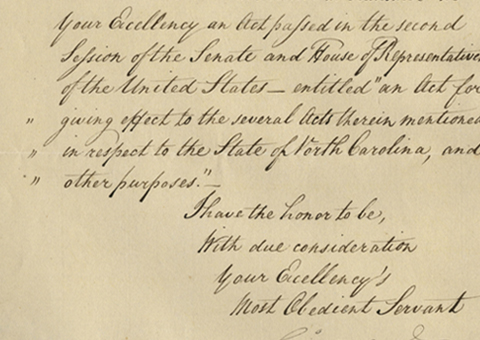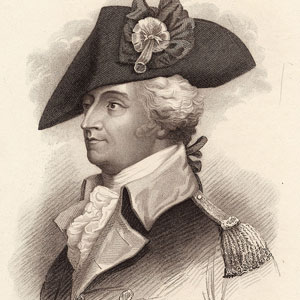“Mad” Anthony Wayne, the Day He Took His Seat As Congressman From Georgia, Seeks to Settle His Debts on His Plantation, a Reward from the State for War-time Service




This incident led to the foreclosure of his plantation and his loss of his Congressional seat.
General Anthony Wayne saw action at the Battles of Brandywine, Germantown, Monmouth, Stony Point, and was tasked with helping to gather food and other supplies during the Continental Army's encampment at Valley Forge. For his actions at Stony Point, he received the Congressional Gold Medal. Wayne was also present in the South...
General Anthony Wayne saw action at the Battles of Brandywine, Germantown, Monmouth, Stony Point, and was tasked with helping to gather food and other supplies during the Continental Army's encampment at Valley Forge. For his actions at Stony Point, he received the Congressional Gold Medal. Wayne was also present in the South for the surrender at Yorktown, where, along with the Marquis de Lafayette, Wayne's forces beseiged and helped capture Cornwallis's army. The "Mad" General was one of Washington's great and storied commanders.
After this victory, Wayne headed south to help Georgia combat Native American forces that were threatening the frontier. This he did successfully, and the Georgia Legislature awarded him a plantation in that state. He also was elected to Congress to represent Georgia in 1790, a seat he assumed on March 4, 1791.
Wayne's rice plantation was located in the vicinity of Savannah. He took out large loans in order to revive the estate in 1785, but two years after he left it "in a depreciating state" to return to Pennsylvania. Wayne's letters describe his great difficulty in purchasing affordable slaves to work the land, his efforts to produce and sell rice and corn, and the scarcity of currency in Georgia, which compounded his troubles turning a profit. Wayne struggled to repay his loans but this dispute with his creditors resulted in his loss of the plantation in 1791. He wrote on that subject on March 1, 1791, just 3 days before he took over as a Congressman from Georgia, "I have been in treaty with my Persecutors."
One of those lenders was Seth John Cuthbert, a revolutionary war hero and war-time Governor of Georgia, who later went into business. He loaned Wayne money in 1785, just as Wayne was attempting to revive his plantation's fortunes.
The day that Wayne took office as Congressman, he was also confronting the dire situation of his land in Georgia. When he reported for the first session, he inventoried his debts remaining to Cuthbert in this piece.
Autograph Document Signed, Savannah, March 4, the day Wayne became a Congressman. It lists "Messrs Seth J. Cuthbert and Co" at the top. In the left column, it notes the date of money received and interest assessed. Wayne borrowed $280 pounds when he set about work on his plantation in 1785. Each year from 1785 through 1787, there is at least one entry. Then evidently Cuthbert received no payments and assessed no interest until 1790, when the tally continues. By 1791, Wayne had nearly but not completely paid down his line with Cuthbert. At the end, he has written, "Savannah 4th March 1791, Errors Excepted, Anthony Wayne."
The Verso of the document contains a notation in Wayne’s hand noting that he has paid the remaining balance.
Wayne's financial troubles resulted in the foreclosure of his plantation, which also led to losing his seat in Congress due to residency requirements. The next year, he was sent on a military mission in Ohio at the request of his old commander, President George Washington.

Frame, Display, Preserve
Each frame is custom constructed, using only proper museum archival materials. This includes:The finest frames, tailored to match the document you have chosen. These can period style, antiqued, gilded, wood, etc. Fabric mats, including silk and satin, as well as museum mat board with hand painted bevels. Attachment of the document to the matting to ensure its protection. This "hinging" is done according to archival standards. Protective "glass," or Tru Vue Optium Acrylic glazing, which is shatter resistant, 99% UV protective, and anti-reflective. You benefit from our decades of experience in designing and creating beautiful, compelling, and protective framed historical documents.
Learn more about our Framing Services









































































































